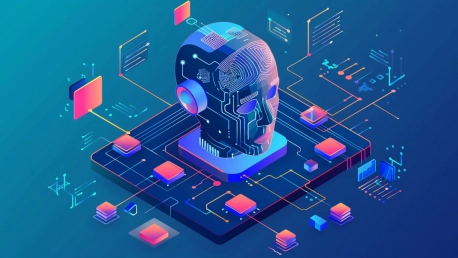The enthusiasm for adopting AI coding tools varies significantly among stakeholders in software development and application security industries. While the idea of AI-generated code propels innovation forward, it also introduces a range of organizational challenges and uncertainties. A recent survey of 406 developers, software engineers, CTOs, CISOs, and application security professionals provided insight into both the readiness and enthusiasm for integrating these tools. A striking majority of respondents, around 80%, indicated a readiness to use AI tools in coding within their organizations. However, there is a notable discrepancy between the enthusiasm levels of C-level executives compared to that of developers and application security professionals. Approximately 40% of the 135 C-level executives surveyed rated their organizations as “extremely ready,” a sentiment shared by only 26% of the 58 application security professionals and 22% of the 119 developers surveyed. Despite the overarching readiness, apprehensions and disparate views remain prevalent.
Disparities in Enthusiasm Among Stakeholders
These disparities in enthusiasm highlight a fundamental gap in perceptions between different roles within an organization. One-third of C-level executives regard the adoption of AI coding tools as critical, reflecting a more aggressive stance toward incorporating AI solutions swiftly. Intriguingly, 19% of these executives perceive no associated risks with AI integration, showcasing an optimistic viewpoint potentially driven by strategic interests and the promise of enhanced productivity. On the contrary, many developers and application security professionals exhibit caution. This caution is not unfounded, as they are more attuned to the nuances of coding and potential security threats. Snyk CTO Danny Allan advises stringent testing of AI-generated code, underlining that such tools are fundamentally probabilistic. Although developers often place undue trust in AI outputs, caution is essential as the quality of AI-generated code can be inconsistent. Despite the fact two-thirds of survey respondents rated the security of AI-generated code as “excellent” or “good,” it’s crucial to approach AI outputs with both optimism and scrutiny.Adding to the skepticism, only 6% of respondents rated the security of AI-generated code as “bad.” However, fewer than half of the surveyed individuals reported that their organizations provided substantial training for developers on using AI coding tools. This lack of training could exacerbate the gap in readiness and enthusiasm levels, leading to inconsistencies in implementation and a potential lag in fully capitalizing on AI capabilities. Training is paramount to ensure developers can effectively collaborate with AI tools, thereby enhancing productivity without compromising on security or quality.
Readiness vs. Actual Implementation
Despite the high reported readiness, the survey revealed that systematic approaches to AI tool adoption are limited. Less than 20% of respondents indicated that their organizations conducted proof-of-concept (POC) evaluations before incorporating AI tools into their workflows. This lack of preliminary evaluation suggests a haphazard and often informal adoption of AI, where individual developers might use these tools independently without official sanction or strategy. The widespread but undocumented use of AI tools could lead to inconsistent practices and potential challenges in aligning AI-generated code with overall organizational goals. Without a strategic approach, the benefits of automated coding might not be fully realized and could introduce new risks into the development process.Allan recommends the use of software bill of materials (SBOMs) to identify machine-generated code. DevOps teams may soon find themselves pivoting their roles to engage more actively in troubleshooting and refining AI-generated outputs. The expectation is that AI tools will enhance developer productivity, leading to more efficient coding processes. However, it’s still unsettled whether AI-generated code will consistently outperform human-created code. The potential benefits are immense, but they will only be realized if there is a systematic and well-structured approach to integrating these tools. In the short term, there is an anticipated imbalance as developers gain quicker access to AI tools, while DevOps engineers wait for platform updates.
Addressing Integration Challenges and Future Trends
The enthusiasm for AI coding tools varies widely among stakeholders in the software development and application security sectors. While AI-generated code drives innovation, it also brings organizational challenges and uncertainties. A recent survey of 406 developers, software engineers, CTOs, CISOs, and application security professionals revealed insights into both the readiness and enthusiasm for these tools. Around 80% of respondents indicated they are ready to integrate AI tools into their coding processes. However, enthusiasm levels differ notably between C-level executives and other professionals. About 40% of the 135 C-level executives surveyed rated their organizations as “extremely ready” for AI adoption. In contrast, only 26% of the 58 application security professionals and 22% of the 119 developers felt the same level of readiness. Despite an overall sense of readiness, apprehensions and varying perspectives remain prevalent, reflecting the complex nature of integrating AI into existing workflows while balancing innovation and security concerns.









